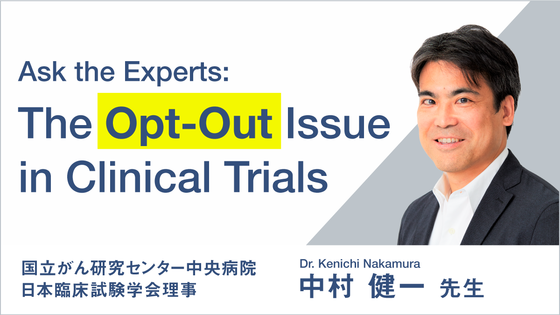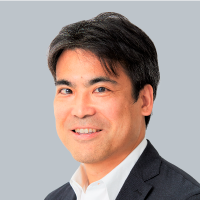
*The details of this guideline revision are outlined in this academic paper that was submitted by Dr. Nakamura to the Japanese Journal of Clinical Oncology (JJCO) in March, 2022.

On March 10th 2022, the Ministry of Education, Culture, Sports, Science and Technology (MEXT), the Ministry of Economy, Trade and Industry (METI), and the Ministry of Health, Labor and Welfare (MHLW) notified us that the “Ethical Guidelines for Life Science and Medical Research Involving Human Subjects1” had been partially revised and would come into effect on April 1st.
In this amendment, the “review of procedures for informed consent, etc.” has been significantly changed in light of the provisions of the recently amended “Act on the Protection of Personal Information.”
There has been a lot of discussion in clinical settings and on SNS regarding the revision, but there are many points that are not readily apparent from the text, causing confusion among investigators conducting clinical research as well as the companies involved. Because of the implementation of the Clinical Trials Act, observational research that relies on opt-outs has become the underpinning of clinical research in Japan. Should ‘opt-out’ become unavailable at private and city hospitals in the future, Japan’s clinical research may fall further behind the rest of the world.
TCROSS NEWS asked Dr. Kenichi Nakamura, board member of the Japanese Society of Clinical Trials and Research (JSCTR) and Director of the Department of International Clinical Development of the National Cancer Center Hospital, for his opinion on how this guideline should be understood.
The two most pressing points of impact from the revision of the ethical guidelines are the tightening of conditions for opt-out use of existing samples and information from one's own institution, and the elaboration of explanations to patients regarding the provision of information to third parties in foreign countries. Regarding the former, many of you may have heard rumors that you will not be able to use opt-out for all research in which your institution does not fall under the category of "academic research institution, etc." This is only half true.
The conditions for opt-out use of existing samples and information from one's own institution include “cases in which there are special reasons and IC/Consent is difficult to obtain” and opt-out use is possible even outside of academic research institutions if these conditions are met.
However, single-center studies that do not fall under these categories will no longer be able to opt out, which has had a significant impact on the field.
On the other hand, the definition of academic research institutions has not yet been clearly defined, and examples of research falling under “special reasons” or “IC/Consent” have not yet been clarified. Because of this, some institutions have already moved to prohibit opt-out use altogether after April 1st, and it is our hope that guidance will be issued as soon as possible.
In addition, the elaboration of explanations to patients regarding the provision of information to third parties in foreign countries has forced many clinical studies to revise their explanatory documents. Although a transitional measure has been established whereby patients who have already consented to third-party provision do not need to re-consent, the impact on the field is significant.
Please note that the above information is based on the latest information at the stage when the Ethical Guidelines Guidance has not yet been issued, and may change depending on the contents of the Guidance.
- Partial Revision of “Ethical Guidelines for Life Science and Medical Research Involving Human Subjects”
https://www.mhlw.go.jp/content/000910918.pdf (viewed April 2022)
Dr. Kenichi Nakamura
National Cancer Center Hospital
2006 - Present
November 2020 – Present
Director, Division of International Clinical Development
February 2017 – Present
Chief Management Officer, Clinical Research Support Office
April 2015 – November 2020
Director, Clinical Research Support Office
April 2008 – January 2017
Division Head, Clinical Trial Management Section
April 2006 – March 2008
Research Resident, JCOG Data Center/Operations Office
Early Career
1995 - 2006
Kyoto University Hospital and affiliated hospitals (Shimane Prefectural Hospital, Mitsubishi Kyoto Hospital, etc.)
Underwent clinical training as a surgeon
1993 - 1999
Graduated from Kyoto University School of Medicine
Area of Expertise
Clinical Research Methodology
Academic Affiliations
American Society of Clinical Oncology (Active Member)
Japanese Society of Clinical Oncology (Council Member)
Japan Society for Clinical Trial Research (Board Member)
The Japanese Association for Cancer Therapy
About the Author: Shuhei Odagiri (Clinical Study & Strategic Consulting)
After working as a clinical research associate and data manager at a global CRO, Mr. Odagiri moved into R&D at a Japanese company to specialize in the field of in vitro diagnostics. In 2021, he joined TCROSS Co., Ltd. as clinical research specialist and currently has more than 3 years of experience. He has a Masters of Pharmaceutical Sciences from Kanazawa University.







